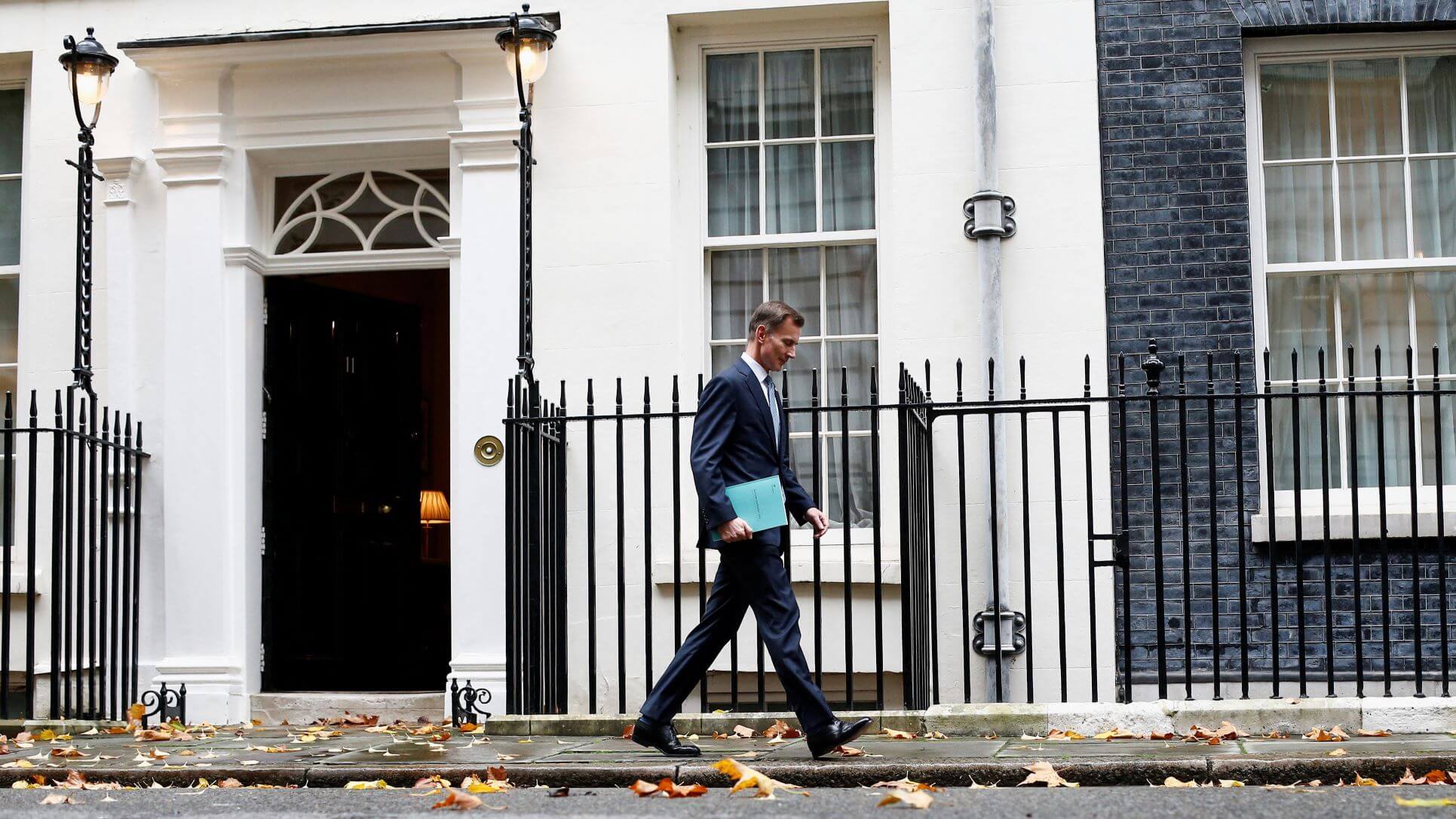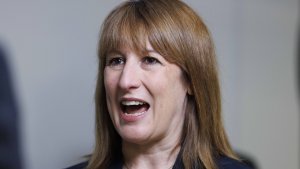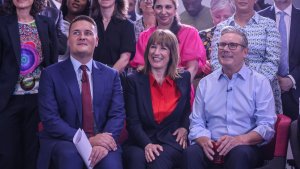UK Borrows Less Than Thought But Hunt Pledges Budget Discipline
Jeremy Hunt, the chancellor, has ruled out tax cuts before the next general election.

Britain borrowed less than expected in the first three months of the financial year data showed on Friday, but finance minister Jeremy Hunt ruled out a rush to cut taxes to help the fortunes of his flagging Conservative Party before the next election.
Although borrowing remains high after the shocks of the coronavirus pandemic and last year's energy price surge, the budget deficit in June stood at 18.5 billion pounds ($23.8 billion), down by 0.4 billion pounds from June 2022.
The June deficit took borrowing in the first three months of the 2023/24 financial year to 54.4 billion pounds, 12.2 billion pounds more than in the same period last year but 7.5 billion less than expected by Britain's budget forecasters.
The Office for National Statistics (ONS) revised down its April-May borrowing estimate by 7 billion pounds as tax revenues - which have been increased by hefty tax hikes announced by the government in November last year - came in stronger than first thought.
Rapid inflation has also played a big role, with value-added tax receipts up 9% this financial year compared with a year ago, despite no increase in the underlying tax rate.
Hunt and Prime Minister Rishi Sunak have so far resisted calls for tax cuts from lawmakers within their Conservative Party ahead of a national election expected in 2024 which opinion polls suggest they will lose.
The Conservatives lost two strategically important parliamentary seats on Friday but unexpectedly won another.
"Now more than ever we need to maintain discipline with the public finances," Hunt said after Friday's borrowing figures.
"We are at a crucial juncture and need to avoid reckless spending. As this week's fall in inflation showed, we will start to see results if we stick to our plan to halve inflation, grow the economy and get debt falling."
Also helping the government has been a better than expected performance by Britain's economy in early 2023 which, while effectively stagnant, has so far avoided a recession.
Separate data published on Friday showed retail sales rose more than expected in June.
However, a measure of consumer confidence fell in July for the first time since January as households felt the hit from higher inflation, borrowing costs and taxes.
Samuel Tombs, an economist with Pantheon Macroeconomics, said the better news on recent public borrowing would not be celebrated much at the Treasury as the outlook for debt interest payments had got a lot worse.
"We continue to think that the Chancellor will not have scope to cut taxes meaningfully before the next general election," Tombs said.
Martin Beck, Chief Economic Advisor to the EY ITEM Club, a forecasting organisation, said there was a good chance that Britain's fiscal watchdog would later this year judge the government to be on course to break its own fiscal rules.
"With an election on the horizon, any additional fiscal tightening will likely be pencilled in for after the country heads to the polls," Beck said, adding the outlook for fiscal policy would only become clearer after the election.
The COVID-19 pandemic period caused government borrowing to soar and public debt has climbed above 100% of gross domestic product, hitting levels not seen since World War Two to stand at 100.8% of gross domestic product in June.
(Additional reporting by David Milliken; Editing by Angus MacSwan)
Thanks for signing up to Minutehack alerts.
Brilliant editorials heading your way soon.
Okay, Thanks!

